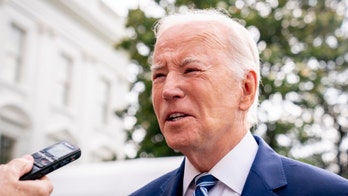President Gustavo Petro's decision to cut diplomatic ties with Israel raises concerns about the future of military and trade agreements between the two nations. Colombia's military relies heavily on Israeli-made fighter jets and weapons, while both countries have a free trade agreement in place.

Colombia and Israel have maintained diplomatic relations since 1957, signing numerous agreements in various sectors, including education and trade. However, military contracts have played a pivotal role in strengthening their bond.
Colombia's air force relies on over 20 Israeli-made Kfir fighter jets, which have been instrumental in combating guerrilla groups. However, the aging fleet requires ongoing maintenance, which only Israeli firms can provide. Colombia also uses Galil rifles designed in Israel and has acquired manufacturing rights.

It remains uncertain how President Petro's announcement will affect existing military contracts with Israel. The Colombian Foreign Ministry has stated that official communications will be conducted through established channels. Colombian Defense Minister Iván Velásquez has indicated that no new contracts will be signed, but existing ones will be fulfilled.
The Colombian government is reportedly considering establishing a "transition" committee to diversify suppliers and reduce reliance on Israel. One possibility under consideration is developing a rifle domestically to replace the Galil.
Security cooperation has been a source of tension between the two countries. In October 2021, Israel halted security exports to Colombia after Petro refused to condemn a Hamas attack on southern Israel. Petro also announced the suspension of arms purchases from Israel in February 2023.
Retired Gen. Guillermo León, former commander of the Colombian air force, believes that Colombia's military capabilities will be compromised if contract obligations are not met or if new contracts are not signed. He emphasized the need for ongoing maintenance for the Kfir fleet, which is essential for sustaining airpower.
A free trade agreement between Colombia and Israel came into effect in August 2020. Israel purchases approximately 1% of Colombia's total exports, including coal, coffee, and flowers. Colombia imports electrical equipment, plastics, and fertilizers from Israel.
Neither government has clarified whether the diplomatic break will impact the free trade agreement. The potential effects on trade relations remain an area of concern.
Colombia's decision to sever diplomatic ties with Israel has raised questions about the future of military and trade agreements between the two nations. While the implications are still uncertain, experts believe that Colombia's military capabilities and trade relations may be affected. The situation will continue to be closely monitored as the governments navigate these changes.










